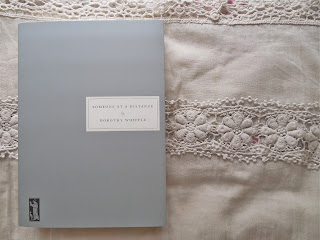 |
Can you tell I took photo this with my
phone considering the terrible dimensions
of this photo? Why would anyone think
these dimensions looks good? |
For the past few months, I feel as if I've been having a renaissance of sorts in terms of my interests. I've been listening to all of my middle school and high school music, full of angst and screaming and overly earnest, potentially creepy lyrics. It's been bringing me pure joy to listen to such songs as Paramore's '
That's What You Get', The Spill Canvas' '
This is For Keeps', and Alexisonfire's '
.44 Caliber Love Letter'. Aside from music, I've been revisiting some of the manga I used to read, and anime I used to watch. I recently decided to pick up the
Cardcaptor Sakura manga from
Kinokuniya, since I've only ever watched the anime, and wanted to try out the manga. I picked up a beautiful omnibus edition (meaning there are four volumes of the manga in one book), in order to test whether or not I'd still enjoy the series, because in revisiting anything beloved from your formative years, there is the large possibility that you will not enjoy it, and maybe even hate it - I'm looking at you
Halloweentown, you let me down!
I am so happy to say that reading Cardcaptor Sakura was awesome. I felt joy the whole way through, and have subsequently bought the next three omnibus editions in order to finish the series ... woops.
So for those who have maybe never heard of Cardcaptor Sakura, it's about a girl named Kinomoto Sakura. She's in the 4th grade, and secretly has magical powers. Sakura's mission is to collect the Clow Cards, magical cards that each have abilities, originally created by the sorcerer Clow Reed. Cerberus, a magical beast and guardian of the Clow Cards, helps Sakura to collect the cards after they escaped when Sakura accidentally set them free when she found the book holding all of them.
As I said, this series did not disappoint. It was joyous to read, and I felt so proud of my younger self for loving this series. Sakura is a really great character. Though she's young, she's powerful, and the vast spectrum of adolescent emotions are part of her strength. Another reason this series did not disappoint was because of the surprising adult content I did not remember at all from the series. Now, I watched the anime of this in my first year of high school, so I wasn't totally naive, but I feel like I would have remembered some of the scandalous aspects of this manga. For example:
- There is an alarming presence of student-teacher romantic relationships. For example, Sakura's parents married when her mom, Nadeshiko, was only 16, and her dad, Fujitaka was 25. Fujitaka was Nadeshiko's teacher! Like, maybe that could be okay? But not really ... The truly alarming thing is ....
- ... the relationship between Sakura's classmate Rika and their teacher!!! Who legit gives Rika an engagement ring ... whaaaaaaaaaaaaat. This is a ten year-old and at least an early twenties dude.
From what I've read so far, these relationships aren't a big deal in the story. The only time it's questioned is when we meet Tomoyo's mom, Sonomi, who was Nadeshiko's cousin, and completely disapproved of the marriage, but mostly because she was in love with Nadeshiko and wanted to be with her. So the relationships in this manga get a little complicated ...
More complicated, is that everyone is in love with someone who is in love with someone else. Which is really par for the course for this kind of manga. What is a pleasant surprise in the manga is the emphasis on queer love and relationships. We have the one case of Sonomi being in love with Nadeshiko. And Sakura's older brother, Toya, is in love with his best friend Yukito, who's the guy that Sakura is in love with. And Tomoyo is in love with Sakura, in much the same way her mom was in love with Nadeshiko - which is another questionable aspect of the manga. I could make a chart of who is in love with who, and who ends up with who. Let me say now, if Toya and Yukito don't end up together I'll be pissed, but I think they will, if only for the reason that Sakura is simply too young for Yukito, and he clearly views her as an amusing younger sister. Besides, Sakura has another love interest, whom I do remember, Syaoron Li. Li is kind of her competition in collecting the Clow Cards, and is thankfully her age.
Please let me know if you've ever read/watched Cardcaptor Sakura, and your thoughts! I'm so happy I'm revisiting this series, and am fascinated to be reading this series as an adult, and much more aware of what is actually going on in the series. I'm also happy to just be reading manga again. It's been years, and I want to have intelligent conversations about them because I think they deserve them. My reading contains multitudes!









